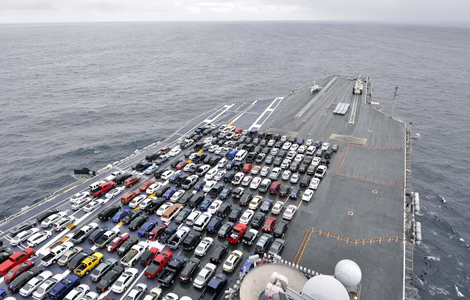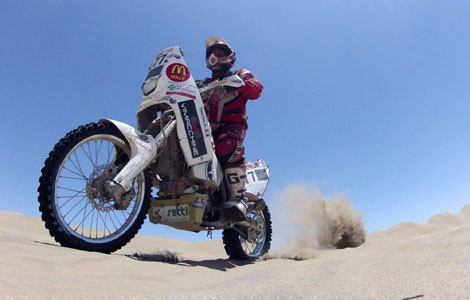|
|||||||||||
BEIJING - Beverage giants PepsiCo Inc and Coca-Cola Co have said the orange juice they sold in China is safe, after discovering an unapproved fungicide in products sold in the United States.
"Our imported juice is in compliance with all the national standards, and our products are 100 percent safe," Fan Zhimin, associate public relations director of PepsiCo Greater China, told China Daily on Monday.
Wang Lei, a public relations executive for Coca-Cola in Beijing, also said that company's orange juice in China is safe and the materials used to produce the juice meet the national standards.
Atlanta-based Coca-Cola notified US federal regulators in December of low levels of carbendazim, an unapproved fungicide, in its and its competitors' orange juice products. The juice was imported from Brazil. The news prompted US authorities to begin screening juice on supermarket shelves.
PepsiCo announced later that Tropicana, its orange juice product, was found to contain traces of the fungicide. That juice was also from Brazil.
The US Food and Drug Administration and the Environmental Protection Agency have said orange juice with low levels of the fungicide is not a safety risk, US media reported.
"Orange juice containing extremely small amount of the fungicide will not cause health hazards," Coca-Cola China said in a statement on its website on Jan 12.
Minute Maid, the orange juice made by the company, tops the sales of juice beverages in China, according to industry statistics.
Carbendazim is a farm chemical widely used in some countries and applied to agricultural products, including cereals, vegetables and fruits. The reason the incident came under the spotlight is that the fungicide, which is accepted in some countries, including Brazil, is banned in the US, according to agricultural experts.
"The fungicide has a low level of toxicity, and we don't have a conclusion on whether it is harmful to people's health. Juice with a micro-scale of its residue is safe to drink," said Zhou Changyong, director of the Citrus Research Institute under the Chinese Academy of Agricultural Sciences.
Jiao Bining, an official of the Ministry of Agriculture, said the amount detected in the juice lies well within China's standards.
China allows a maximum of 0.5 milligram of carbendazim residue per kg of citrus fruit, equals 500 ppb (parts per billion). The limit in the US is 80 ppb.
But food manufacturers must carry out strict checks of materials from suppliers to avoid chemical perils, said Dong Jinshi, executive vice-president of the International Food Packaging Association.
Hot Topics
Kim Jong-il, Mengniu, train crash probe, Vaclav Havel, New Year, coast guard death, Internet security, Mekong River, Strait of Hormuz, economic work conference
Editor's Picks

|

|

|

|

|

|







